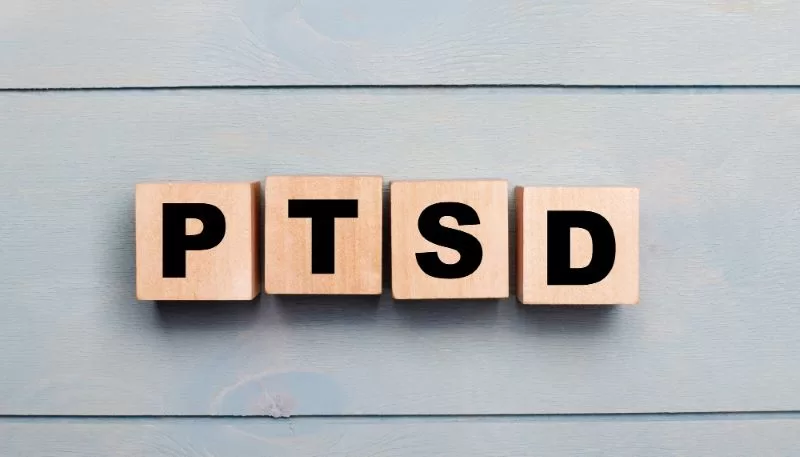Affinity Health, a leading provider of high-quality health cover, highlights the importance of understanding Post-Traumatic Stress Disorder (PTSD) and offers effective interventions for those grappling with this complex and often debilitating mental health condition.

“PTSD affects approximately eight per cent of the global population at some point in their lives, making it a significant public health concern,” says Murray Hewlett, CEO of Affinity Health.
“South Africa, in particular, has a high prevalence of PTSD among the population. By raising awareness and offering education, we can work towards creating a society that prioritises mental health and offers appropriate resources for individuals living with PTSD.”
Common Causes and Risk Factors for PTSD
A variety of traumatic experiences can cause PTSD. These can range from combat exposure and physical assault to accidents, natural disasters, or childhood abuse. Factors that may increase the risk of developing PTSD include a history of mental health disorders, a lack of social support, genetic predisposition, and the intensity and duration of the traumatic event.
The Neurobiology of PTSD
PTSD has a profound impact on the brain and its functioning. The condition alters the neural pathways associated with memory, emotions, and fear responses.
Brain imaging studies have shown differences in brain structure and activity among individuals with PTSD, providing insights into the biological basis of the disorder.
The Impact of PTSD on Individuals and Society
PTSD can have far-reaching consequences on both individuals and society. Those affected by PTSD may experience significant impairment in various aspects of their lives, including relationships, work, and overall quality of life. The societal impact includes increased healthcare costs, reduced productivity, and the burden of caregiving.
Recognising Symptoms
PTSD is characterised by various symptoms that can significantly impact daily functioning.
Common symptoms include intrusive thoughts or memories of the traumatic event, nightmares, flashbacks, avoidance of reminders, hypervigilance, emotional numbing, and difficulties with sleep and concentration.
Individuals with PTSD may also experience comorbidities like depression, anxiety disorders, substance abuse, and physical health problems.
The Importance of Early Detection and Intervention
Early detection and intervention play a crucial role in mitigating the long-term effects of PTSD. Timely identification of symptoms and appropriate support can help individuals receive necessary treatment, improve their overall well-being, and prevent worsening symptoms.
Diagnosis and Assessment
Diagnosing PTSD involves evaluating the presence and severity of specific symptoms.
Healthcare professionals, such as psychiatrists and psychologists, play a vital role in conducting comprehensive assessments to determine if an individual meets the diagnostic criteria for PTSD. Various assessment tools and techniques, including interviews and self-report measures, are used to aid in the diagnosis.
Treatment and Management
Effective treatments for PTSD are available and can significantly improve the lives of those affected.
Evidence-based therapies, such as cognitive-behavioural therapy (CBT) and eye movement desensitisation and reprocessing (EMDR), have successfully reduced symptoms and promoted recovery.
Medication options, including selective serotonin reuptake inhibitors (SSRIs), may also be prescribed. Complementary and alternative treatments, such as yoga, meditation, and acupuncture, can be adjuncts to traditional therapies.
Self-help strategies and coping mechanisms, such as exercise, relaxation techniques, and support groups, can also aid in managing symptoms.
Supporting Individuals with PTSD
Trauma can profoundly impact relationships, and it is crucial to understand and address these challenges. Providing emotional support, actively listening, and creating a safe and non-judgmental environment is essential for supporting individuals with PTSD.
Educating oneself about the condition and its effects is essential, fostering empathy and understanding. Resources such as therapy, support groups, and online communities can provide valuable guidance and connection for caregivers, families, and friends. Building a supportive community that encourages open dialogue and reduces stigma is instrumental in creating an environment conducive to healing and recovery.
PTSD in Specific Populations
PTSD can affect specific populations differently, requiring tailored approaches to treatment and support:
PTSD Among Veterans and Active-Duty Military Personnel: Military service members often face unique and intense traumatic experiences. Addressing the specific needs of veterans and active-duty personnel requires specialised care, including veteran-centred support programmes, access to mental health services, and promoting a mental health culture within the military.
PTSD in Children and Adolescents: Traumatic experiences during childhood can have long-lasting effects on mental health. Early identification, trauma-focused therapy, and support from caregivers, teachers, and mental health professionals are crucial in helping children and adolescents recover from PTSD.
PTSD in Survivors of Sexual Assault and Domestic Violence: Survivors of sexual assault and domestic violence are at a heightened risk of developing PTSD. Comprehensive support services, including crisis intervention, counselling, and legal advocacy, are essential in helping survivors heal from their trauma and rebuild their lives.
PTSD in Healthcare Workers and First Responders: Healthcare workers and first responders often face traumatic events as part of their professional duties. Specialised support systems, including mental health resources, debriefing sessions, and proactive organisational policies, are necessary to address the unique challenges faced by these individuals and mitigate the impact of trauma on their well-being.





























